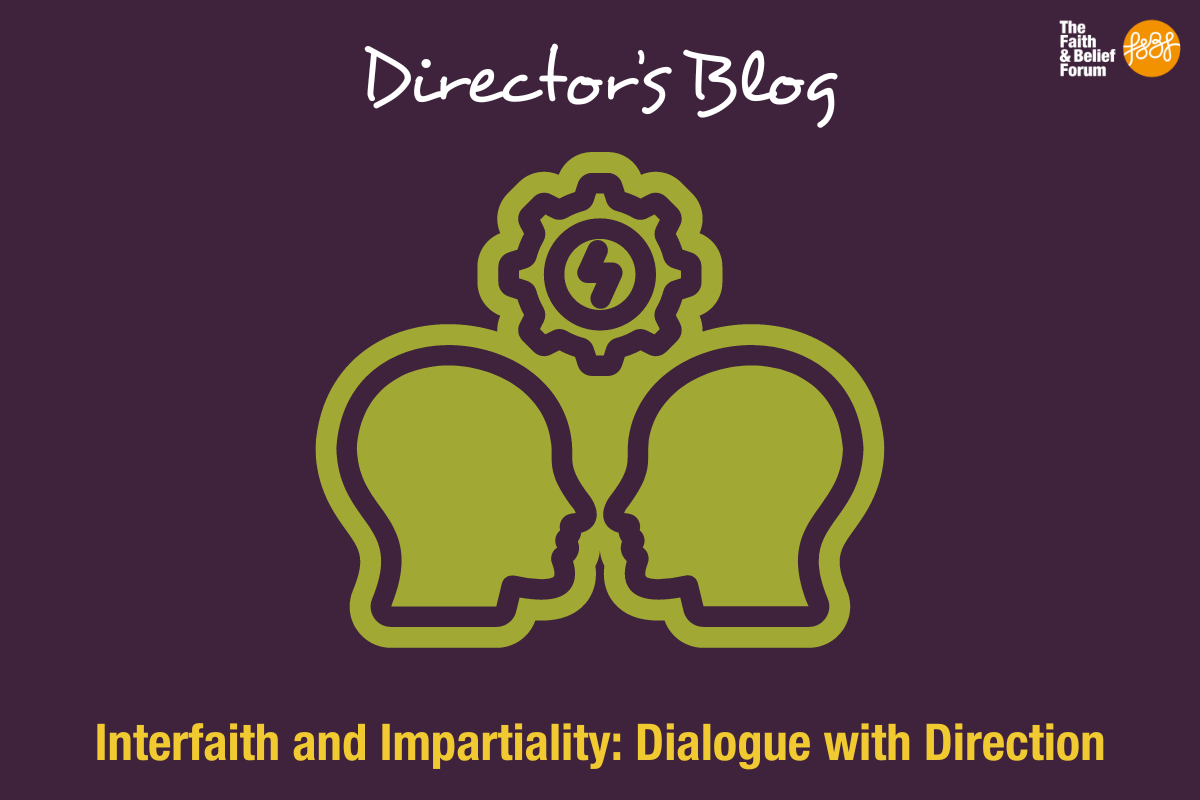
Challenging Faith Based Hate: True Stories
16 / 02 / 24
Menu

06 / 07 / 22

By Phil Champain, Director of the Faith & Belief Forum
July marks the month when, three years ago, ‘No Outsiders’, the equality programme of lessons at the centre of heated debate over LGBT rights, was relaunched at Parkfield School in Alum Rock after four months of consultation with parents. As a result of the consultation, the programme was renamed ‘No Outsiders for a Faith Community’ and was especially designed for Parkfield Community School acknowledging and respecting the concerns and sensitivity expressed by some parents in the school community.
This episode raises an important question about how the faiths and beliefs of parents and communities connect with school life. For us at F&BF this relates most directly to the teaching of religious education (RE). But, as the No Outsiders episode shows, it also relates to how schools handle Relationship and Sex Education (RSE) – something which intersects closely with many people’s faith and belief identity.
Following the report of the Commission on Religious Education (CoRE) in September 2018 the teaching of RE has been under the spotlight. Practical and real change in response to the Commission’s recommendations is a slow burn for sure. But the work of the Commission has stimulated some significant discussion and a variety of initiatives.
One such initiative has brought F&BF together with Inform and the Open University to deliver a project funded by Culham St Gabriel’s. Our group is exploring attitudes to the teaching of RE and education in religion and worldviews in schools (a recommendation put forward by CoRE and explained very engagingly in a video by Theos), held by those outside the classroom, notably parents. Schools are a core part of the community. The intersection between the school and the community is of central importance. How does this then shape teaching about faith and belief in schools?
Our recently released Insights Report suggests that parents have more positive attitudes to the teaching of religion and worldviews than is perhaps assumed by those engaged with the subject professionally. There is something to build on here. More importantly for us though is the process of engaging parents as the teaching of the subject evolves. If we are to learn anything from the clashes over No Outsiders, it is the importance of consultation and engagement with parents and the communities they live in.
Consensus on how RE should be taught in schools is unlikely, and the expertise of professionals in this field must be respected. However, not keeping parents abreast of new developments and changes risks encountering negative conflict that could be avoided. Indeed, disagreeing well is a necessary ingredient of social cohesion in the UK’s increasingly diverse communities. Not having the opportunity to be heard is a greater risk to social cohesion than shutting out voices on the grounds they are unpalatable.
In this sense, the well-respected Imam Qari Asim’s recent remarks in response to the film the Lady of Heaven which, he said, was deeply offensive and disparaging to Muslims , is to be welcomed by those advocating for stronger social cohesion. Shutting the door on such individuals (Qari Asim was sacked by the government from his roles as an independent adviser on Islamophobia and deputy chairman of the Anti-Muslim Hatred Working Group) will only feed suspicion of ‘the other’ and deepen division. We must learn to engage with those who hold different faiths and beliefs to our own, and who express their values differently to us.
Religious education has an important role to play in navigating this complexity. How best to deliver it must involve those outside the school gates as well as those inside the classroom.

16 / 02 / 24

15 / 02 / 24

16 / 01 / 24